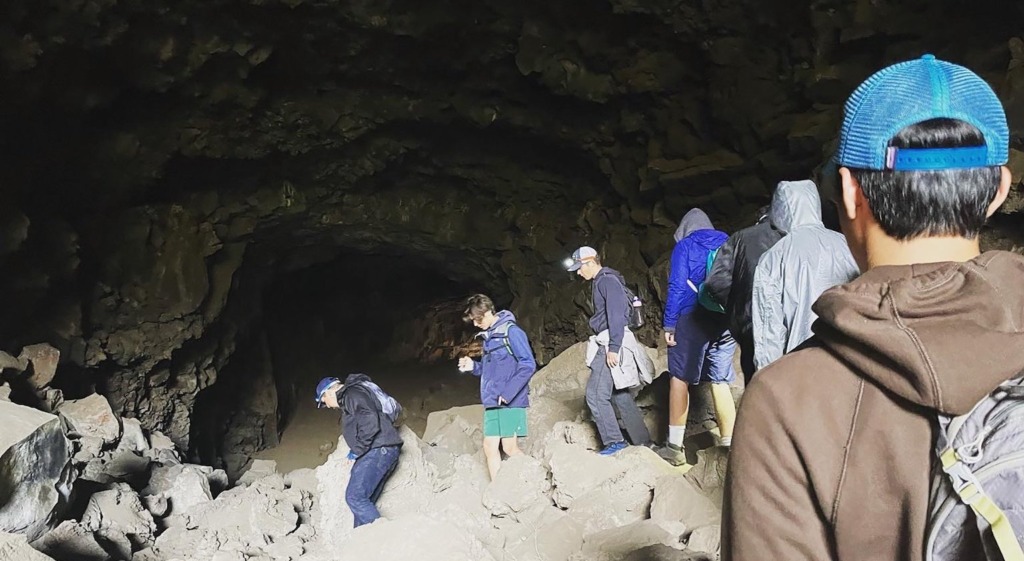Pope Francis’ 2015 encyclical on the environment, “Laudato Si’,” has sparked urgency, awareness and an overall push for ecological education.
“Good education plants seeds when we are young, and these continue to bear fruit throughout life. … Our efforts at education will be inadequate and ineffectual unless we strive to promote a new way of thinking about human beings, life, society and our relationship with nature,” Pope Francis wrote in the encyclical.
Catholic schools have a unique position to help students think critically and ultimately apply what they learn using Christian teachings as their moral guide.
Catholic schools have long demonstrated the commitment to “care for our common home” by implementing innovative environmental initiatives that train students to be creation stewards.
In New Orleans, Ursuline Academy, an all-girls school for early childhood to 12th grade, operates on the motto “Serviam,” “I will serve.”
The high school requires students to complete 25 service hours annually. Students also complete in-class service-learning projects, noted theology teacher Sarah Coles Gunn.
Seniors focus on environmental ethics, which was integrated roughly when “Laudato Si'” was published.
Ursuline has partnered with several local environmental organizations, including Common Ground Relief, Jean Lafitte National Historical Park and Preserve, Green Light New Orleans, Grow Dat Youth Farm and Sugar Roots Farm.
In teacher Coles Gunn’s class, students analyze encyclical excerpts, keying in on those about “the call for us to deal with issues in our area,” she said. The in-class service-learning portion works with Pontchartrain Conservancy and Woodlands Conservancy, where students plant saplings to help curb coastal wetland erosion.
Each year, the school celebrates the feast day of St. Angela Merici, the Ursulines’ foundress, by volunteering throughout New Orleans.
Last school year, seniors went to Woodlands Conservancy, and third graders worked with HandsOn New Orleans, visiting an urban garden. They painted a mini pot and a premade birdhouse and made a wind chime and a tissue paper stained-glass window.
In Holmdel, New Jersey, St. Benedict Catholic, pre-K to eighth grade, has an outdoor learning center that was completed nearly two years ago.
“It was truly a godsend having this space. Through COVID, it was used every single day,” said principal Kevin Donahue.
The 3- to 5-year-olds have dedicated gardens, and the older students use the grounds for science, reading and music lessons.
Other amenities include a potting shed, a composter, a pond with fish and frogs, and an amphitheater-style outdoor classroom with benches, whiteboards and chalkboards. The most recent installation is a sensory garden with various play pieces and a music wall.
In September, Loyola High School of Los Angeles, an all-boys school, conducted a waste audit, partnering with Go2Zero, a consulting firm. Students collected trash for a day and sorted through the bags of waste. Next, they will analyze the data.
“We have a student body that wants to understand the impact. When we hit them with the real numbers, I think it will make a difference,” said director of faculty Daniel Annarelli, who oversees several sustainability initiatives and leads authorship of their “Laudato Si'” Action Plan.
By the end of the year, Loyola intends to write proposals for composting, solar panels and water conservation efforts on campus. There are also plans to build a community garden that would ideally grow food that students could give away to residents or even make it available for them to use, Annarelli added.
Loyola also offers “Laudato Si'” immersion programs, which occur domestically and internationally.
There is a hiking and camping trip to the beach in the eastern Sierra, examining the impact of climate change and wildfires. Students have visited Iceland and the Galapagos to investigate the conservation movements of endangered species, marine populations and marine mammals.
“The intersectionality of the environment and environmental justice with social justice aligns with our mission in all kinds of ways. That’s why we’re undertaking the responsibility of doing this,” Annarelli said.
Clark is a Washington-based Catholic freelance writer and multimedia producer with the National Press Foundation. She is a graduate of Ursuline Academy.

